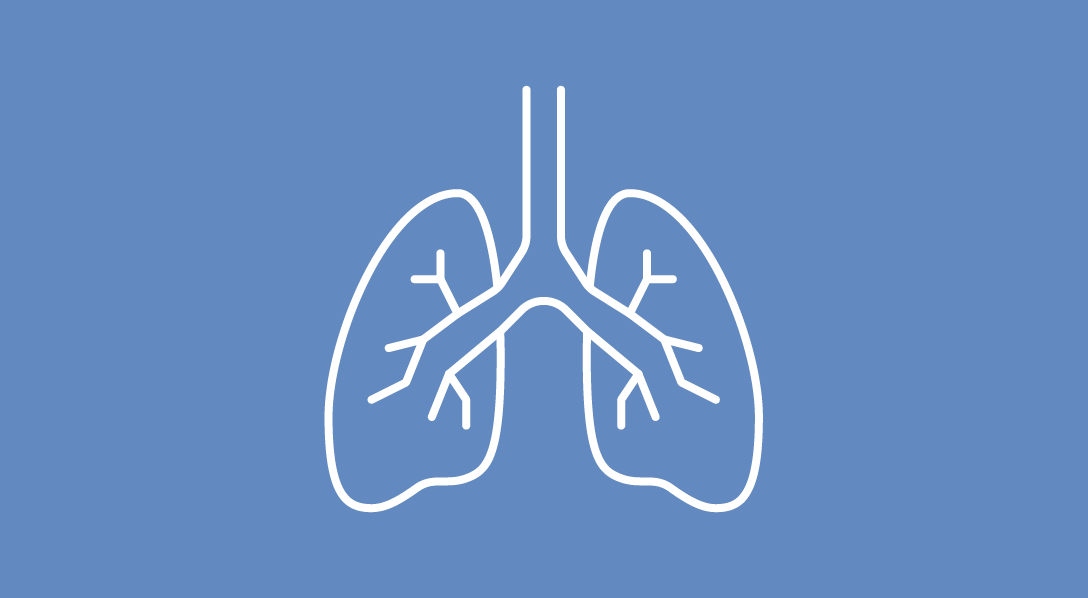BLA for Datopotamab Deruxtecan Under FDA Review for Pretreated Advanced Nonsquamous NSCLC
The FDA is currently reviewing a BLA that seeks the approval of datopotamab deruxtecan as a therapeutic option for pretreated nonsquamous non–small cell lung cancer.
BLA for Datopotamab Deruxtecan Under FDA Review for Pretreated Advanced Nonsquamous NSCLC

The FDA agreed to review a biologics license application (BLA) that is seeking approval of datopotamab deruxtecan (Dato-DXd) as a potential treatment option for patients with locally advanced or metastatic nonsquamous non–small cell lung cancer (NSCLC) following prior systemic therapy.1
The BLA is based on data from the phase 3 TROPION-Lung01 trial (NCT04656652), which showed a statistically significant improvement in the dual primary end point of progression-free survival (PFS) with the antibody-drug conjugate (ADC) vs docetaxel in patients with locally advanced or metastatic NSCLC who received at least 1 prior line of systemic therapy (HR, 0.75; 95% CI, 0.62-0.91; P =.004).2 In the overall population the median PFS was 4.4 months (95% CI, 4.2-5.6) with Dato-DXd vs 3.7 months (95% CI, 2.9-4.2) with docetaxel.
The other dual primary end point of overall survival (OS) showed a numerical but not statistically significant advantage with Dato-DXd (HR, 0.90; 95% CI, 0.72-1.13). Here, the median OS was 12.4 months (95% CI, 10.8-14.8) vs 11.0 months (95% CI, 9.8-12.5) with Dato-DXd and docetaxel, respectively.
However, within the subset of patients with nonsquamous histology, Dato-DXd led to a clinically meaningful benefit in PFS (HR, 0.63; 95% CI, 0.51-0.78) and a numerical improvement in OS (HR, 0.77; 95% CI, 0.59-1.01) vs docetaxel. The median PFS in the nonsquamous population was 5.6 months (95% CI, 4.4-7.0) with Dato-DXd vs 3.7 months (95% CI, 2.9-4.2) with docetaxel. In patients with nonsquamous, driver-negative disease, Dato-DXd led to a 29% reduction in the risk of progression or death vs docetaxel (HR, 0.71; 95% CI, 0.56-0.91).
The FDA action date for the regulatory decision is scheduled for the fourth quarter of 2024 according to the Prescription Drug User Fee Act date.1
“Dato-DXd has the potential to offer patients with previously treated advanced nonsquamous NSCLC an effective and tolerable alternative to conventional chemotherapy. With regulatory discussions ongoing around the world and a parallel submission underway in the US in breast cancer, this is only the beginning of our efforts to make this novel treatment available to patients as quickly as possible,” Susan Galbraith, executive vice president of Oncology R&D at AstraZeneca, stated in a news release.
TROPION-Lung01 was a randomized, global, open-label trial that enrolled patients with stage IIIB, IIIC, or IV NSCLC irrespective of the presence or absence of genomic alterations.2 Patients without genomic alterations must have received 1 or 2 prior lines of therapy including platinum-based chemotherapy and anti–PD-1/L1 therapy. Patients who tested positive for EGFR, ALK, NTRK, BRAF, ROS1, RET, or MET exon 14 skipping alterations must have received 1 or 2 prior lines of approved targeted therapy plus platinum-based chemotherapy and no more than 1 anti–PD-1/L1 antibody.
Patients with prior exposure to docetaxel and an ECOG performance status greater than 1 were excluded from enrollment.
Patients were randomly assigned 1:1 to 6 mg/kg of Dato-DXd every 3 weeks (n = 299) or 75 mg/m2 of docetaxel every 3 weeks (n = 305).
In addition to the dual primary end points of PFS and OS, secondary end points included objective response rate (ORR), duration of response (DOR), and safety.
Within the nonsquamous population, which included patients with and without actionable genomic alterations, the ORR was 31.2% with datopotamab deruxtecan vs 12.8% with docetaxel. The median DOR was 7.7 months and 5.6 months with Dato-DXd and docetaxel, respectively.
Regarding safety, the profile of the ADC was consistent with that reported in other ongoing trials, with the most common adverse effects being stomatitis (47%) and nausea (34%).
“Today’s news is an important step forward in our goal of creating new standards of care that have the potential to transform the treatment of patients with NSCLC. We are encouraged by the FDA’s acceptance of the BLA as we endeavor to make Dato-DXd the first TROP2-directed ADC approved to treat patients with nonsquamous NSCLC after disease progression on prior systemic therapy. We look forward to working closely with the FDA to bring Dato-DXd to patients,” Ken Takeshita, MD, global head of R&D at Daiichi Sankyo, said.
A second BLA for Dato-DXd is pending acceptance from the FDA for the treatment of patients with metastatic hormone receptor–positive, HER2-negative (immunohistochemistry [IHC] 0, IHC 1+ or IHC 2+/in situ hydridization–negative) breast cancer based on findings from the phase 3 TROPION-Breast01 trial (NCT05104866).
References
- Datopotamab deruxtecan biologics license application accepted in the US for patients with previously treated advanced nonsquamous non-small cell lung cancer. News release. AstraZeneca. February 19, 2024. Accessed February 19, 2024. https://www.astrazeneca.com/media-centre/press-releases/2024/fda-accepts-dato-dxd-bla-for-nonsquamous-nsclc.html
- Ahn MJ, Lisberg A, Paz-Ares L, et al. Datopotamab deruxtecan (Dato-DXd) vs docetaxel in previously treated advanced/metastatic (adv/met) non-small cell lung cancer (NSCLC): Results of the randomized phase III study TROPION-Lung01. Ann Oncol. 2023;34(suppl 2):S1305-S1306. doi:10.1016/j.annonc.2023.10.061


